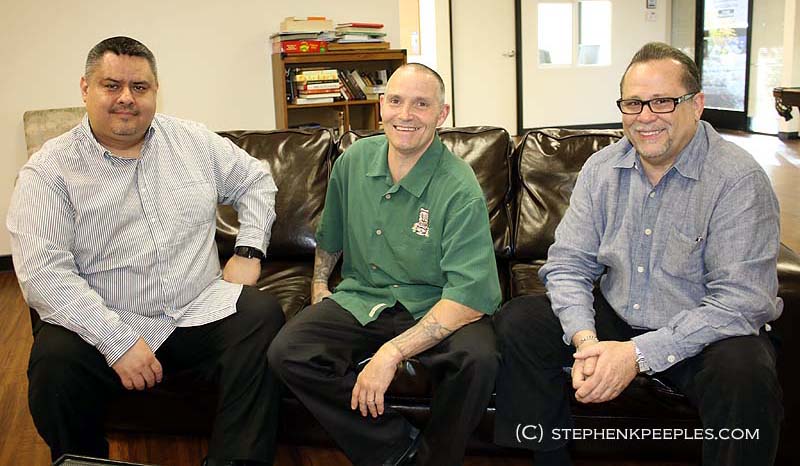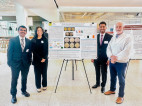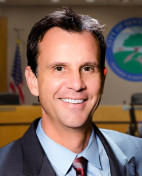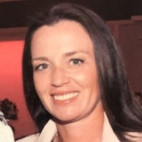[KHTS] – Santa Clarita’s newest free public school is taking a new-school approach to an old-school problem.
The William S. Hart Union High School District and Action Family Counseling’s non-profit Action Family Foundation have teamed to open Action Academy, the first “sober school” in the Santa Clarita Valley.
Action Academy, open Monday through Thursday from 8:30 a.m. to 3:30 p.m. at the Action Family Zone in Canyon Country, is designed for SCV students in grades 7-12 who are at risk of, or recovering from, drug or alcohol addiction.
“Right now, I’m not thinking about marijuana, just focusing on school and the family and sports,” said Nick R., a 13-year-old eighth-grader from Santa Clarita, and among the dozen students attending Action Academy in its inaugural semester.
Nick and his classmates — a mostly even mix of junior and senior high school students — are receiving free, grade-specific, Hart District-approved academic instruction plus free drug and alcohol counseling and supervision at the Zone, with the full cooperation of local law enforcement authorities.
Action Academy Offers Fresh Start to Sobriety
For Santa Clarita students like Nick, and especially formerly addicted students just coming out of a rehab program, Action Academy provides a voluntary opportunity to make a fresh start and stay sober at school during recovery. After school, the Zone stays open another hour, until 4:30 p.m., so students can get counseling, help with homework, or just hang out in a safe place.
Nick didn’t have that kind of all-day and after-school supervision last semester. He was caught holding a large vial of marijuana at school. He told administrators, his parents, and the law the vial wasn’t his, that he was holding it for an acquaintance. Nick said he’d only tried pot a couple of times, with kids a few years older, including a cousin.
At first, school administrators suspended Nick. On further consideration, they figured the large quantity they caught him with meant he intended to sell the drug, a much more serious issue. They expelled him altogether.
“He sticks to his story and I believe him, because I never saw any indication that he was into drugs,” said Nick’s mother, Telma, who in turn stuck by her son, the youngest of her and her longtime partner’s six children — and the only one in trouble, she said.
Still, Nick had a juvenile court date looming, but Sgt. Bob Wachsmuth of the Santa Clarita Valley Sheriff’s Department’s Juvenile Intervention Team intervened.
After talking with the teen, Waschmuth figured Nick as a good kid who made a bad mistake, but still reachable and committed to staying sober. So Wachsmuth worked with the courts and Nick’s parents to find a new school that would give the boy another chance.
“Sgt. Bob was trying to locate a school for him to go to here (in the Santa Clarita Valley), but because of (the expulsion), Nick couldn’t go anywhere.” Telma said. “(Wachsmuth) was going to try to get him into that new school in Northridge (Northridge Academy). … Just as we were going to go to the interview (there), I got the call from Action Academy, and I thought that was a better deal.”
Nick, who says he’s been sober since he was caught and goes to counseling each week, wants to be professional baseball or basketball player, and is already playing with a traveling baseball team. For him, Action Academy represents a fresh start, a way to stay close to home and family, and a way to avoid being sucked into the juvenile-criminal justice system.
“I’m hoping it goes really well,” he said the Friday before school started.
Nick’s folks also hope attending Action Academy nips their son’s potential marijuana problem in the bud, and prepares him to make smarter choices than getting high with older kids who aren’t as motivated and well-equipped to resist temptation and peer pressure.
“I think it’s more beneficial to Nick ’cause he’ll learn and have counseling,” his mother said. “I’m sure he’ll make better choices of people he hangs out with. I’m really grateful to Sgt. Bob, otherwise he would’ve gone to court or to juvenile hall.”
A Closer Look at Action Academy — the ‘Missing Piece’
Partnering with the Action Family Foundation in the new Action Academy is part of the Hart District’s overall plan “to work with students in the area of substance abuse,” according to Kathy Hunter, the district’s director of student services.
“It’s been a dream of ours at Action for many, many years to open up some kind of school, because that’s really the piece that’s missing,” said Cary Quashen, CEO/founder of the Action Family Counseling rehab centers and executive director of the non-profit Action Family Foundation, in a separate interview.
Hunter said she and Quashen began talking a couple years ago about joining forces to open a sober school for Santa Clarita teens.
At the time, there was a spike in local heroin deaths. A combined attack by officials from the city of Santa Clarita, the SCV Sheriff’s Station, the county courts, the Hart District and Action to on hard drug abuse had not yet stopped it.
“Heroin Kills: The High is a Lie” and “It Takes a Village” became mantras for these community efforts to give SCV children a better environment in which to grow up.
Heroin-related deaths indeed dropped dramatically in 2013 — by about 75 percent — according to the latest figures from the SCV Sheriff’s Station. However, Action counselors have instead seen an uptick in marijuana use and opiate-based prescription pill abuse among younger people in the last year.
Initial discussions about a sober high school quickly came to include junior high school as well.
“Most kids start using at the ages of 12, 13, 14,” Sharits said. “They’re starting in junior high school. We want to get them right when they start.”
“We’re getting kids 12-14 who are in major crises,” Urbina said. “So, we’ve got to step it up a little bit, and this (school) is a great step to step it up.”
Hunter also sees Action Academy as part of an effort to fill in the gaps in rehab resources available in the SCV.
“Right now (district schools) have programs for prevention, for awareness and for intervention,” she said, referring to C.A.D.R.E. and DFYIT.
“We realized the one area we didn’t have a program for is maintenance for those students who have already been to rehab and need to maintain their sober lifestyle,” she said. “We also needed a program for students who are potentially on the path to go to rehab who maybe we can head off a little early. So, this is the last prong of our overall comprehensive plan as we continue to try to address this issue.”
Hunter said she and Quashen decided to collaborate on establishing a sober school that would be completely free to students.
“That’s when we started sitting down, having meetings,” she said. “We took the idea to Vicki Engbrecht, (Hart District) deputy superintendent, and she was on board with it. Then we spoke to our governing board members, who also thought it was an excellent idea and something we needed to provide to our students.”
For Action’s part, Quashen said, “We have the residential treatment centers, the intensive outpatient program, the support groups, but … here’s what I hear all the time: ‘Everyone I know is using.’ That doesn’t mean every kid is using, but that means when we’re dealing with kids who have been using drugs for any period of time, that’s all they hang out with.
“Even if they haven’t been in rehab, and they want to get sober, you say, ‘Okay, get sober, stay away from all of your friends,’” he said. “Now what? What do they do, lock themselves in the house, in a bubble? You can’t do that.”
Action Academy A Safe Environment for Learning, Building Coping Skills
Action Academy, both Hunter and Quashen said, “is an alternative” to just tossing a rehabbing student back into his or her old environment, or locking them up at home in their rooms except to eat, go to school, or maybe to work.
“We want to take these kids, put them in a safe environment, in a school where they can do some learning, get all the counseling they need, plus have this major positive support with the (same) kids that used to get them in trouble,” he said. “These are the kids now that they want to hang out with, but they’re sober. That’s a big change when it comes to peer pressure.
“Our goal is not to keep these kids in bubbles — it’s to get them strong enough with themselves to be able to walk into anywhere and say, No, I don’t do that anymore,’” Quashen said.
“Really, [it’s going to] be just like an intensive outpatient program, the therapeutic curriculum that’s inside the intensive outpatient program is included in the school,” said Bob Sharits, who runs Action Family Counseling’s outpatient program for recovering addicts.
“They can use that positive peer pressure so they and their friends can be leaders in a community of people who used to do drugs, to say it’s not cool to do that anymore,” Sharits said.
Fewer than half the first dozen Action Academy students are coming out of rehab.
“The majority have been referred by other schools through a variety of different circumstances,” Sharits said. “It is a voluntary school. There’s no contract that says you have to be here; nobody’s forced to be here. Alex and I primarily have been doing the sign-up process the last couple of weeks, and every one of the kids who walk through the door on some level personally is very excited about having this change in their lives. But, again, it’s voluntary. They want to do it.”
“I think what’s going to be the most profound experience in (Action Academy’s) curriculum is creating that safe space for the kids to express themselves,” Urbina said.
“Kids are holding and bottling in so much stress and anxiety and all the other stuff that they’re dealing with in their household or just in life in general, and the pressures that life puts on them,” he said. “It’s a safe outlet for kids to just express and get it off their chest. … Kids want to be heard. They need to be heard. So, that’s part of our curriculum, along with the school.”
Action Academy’s ‘Hart at Home’ Academic Curriculum
“The curriculum is…the same curriculum we utilize right now at our ‘Hart at Home’ program,” Hunter said. “That’s an online curriculum called Apex. It’s Common Core-based and meets all the A-G requirements for UC admissions.”
The “Hart at Home” program is rigorous, she said. “So (students) will not in any way be short-changed on what they’re receiving academically. They will totally be on board with their peers and might even move ahead because they’re able to move at their own pace since it’s online, and so being able to do that might even move them ahead of where they would normally have been in a regular classroom.”
Action Academy is “not going to be the normal textbook-based, sit-in-the-classroom instruction you would have if you were at your home campus,” she said. “It will differ in that way. But the Academy will have a certified teacher, Kelly Abbott, who will be teaching the curriculum, meeting with the students every day and making sure they are earning the right credits and staying on track for graduation. That way the (student) can easily transition back into their home school whenever the time comes for them to do that.”
Additional Curriculum Geared to Self-Expression
It won’t all be hard-core academics and intensive group and individual counseling at Action Academy.
As Urbina mentioned, the school’s administrators and instructors encourage self-expression, and are providing students additional programs and services involving art, music, writing, and stress-relieving meditative techniques.
“These and various other types of services will help them actually keep that sober lifestyle going, as opposed to just doing academics during their school day,” Hunter said. “We have so many people in this community who are supporting this program through just volunteering their time and their expertise. It’s really incredible.”
Remo’s HealthRHYTHMS Brings Drum Circle Therapy to Action Academy
For example, Action Academy has partnered with Remo Inc. to bring the Valencia-based drum manufacturer’s proven-effective HealthRHYTHMS drum circle therapy into the school’s curriculum.
HealthRHYTHMS is a program based on original research by neuroscientist Barry Bittman, MD into the positive biological effects of drum circles, and further developed with initial funding from Remo founder Remo Belli and his wife, Ami.
Bittman’s research established that combining proven wellness strategies with use of the drum as a catalyst for communication and personal expression actually strengthened the immune system, said Alyssa Janney, Remo’s HealthRHYTHMS manager.
“He went on to study his protocol and discovered additional biological and socio-psychological benefits including reducing stress and burnout rates, improving mood states and increasing creativity and bonding,” she said.
In its first 13 years, HealthRHYTHMS has trained drum circle facilitators — all of whom are also licensed therapists — in all 50 states and 25 countries. Remo has previously worked with city officials, courts and rehab operations in San Francisco and Ohio, earning kudos from educators, judges and grateful parents.
Locally, Dr. Nicholas Betty, the Hart District’s intensive counseling services program director and a licensed marriage and family therapist, has coordinated recent HealthRHYTHMS programs and sessions at different schools, with similarly positive effect.
At Action Academy, Janney said, a trained HealthRHYTHMS facilitator will tailor specific goals based on the group’s needs.
“The general goals are to use the protocol to strengthen communication skills, empathy, improve mood and decrease stress and burnout,” she said.
Reduce Stress, Reduce Relapses
Stress is thought to be the No. 1 cause of relapse to drug abuse, including smoking (tobacco), Janney said, citing research by the National Institute on Drug Abuse (2005).
“If the researchers are correct, then reducing stress should correlate to reduced drug abuse relapse,” she said.
A drum circle taps into something primal within us all, primal as a heartbeat. Initially recalcitrant participants often transform into rabid proponents. This writer has seen this happen with adults as well as children.
“The (drum circle) process levels the playing field, establishes respect for all participants and creates opportunities for expressing things they may not have words to express,” she said. “Then it can bring on biological and psycho-social transformation through peer support, reduced stress, improved mood states, reduced anger and interpersonal problems, strengthened immune system, improved self-esteem, improved school role performance, greater personal responsibility and a bigger vision for their lives.”
Strengthening the Chain of Rehab and Recovery
HealthRHYTHMS complements Action Academy’s attempt to be the missing link in the rehab chain for SCV teens kicking drugs and/or alcohol.
“These are the kids (who) don’t go to school — forget continuation, forget independence. They don’t do anything,” said Quashen, an ex-addict who’s been sober and working in the rehab field for more than 30 years, and not one to mince words.
“So we get them, (and) we put them in a classroom where they have to sit for hours, which they normally don’t do,” he said. “They have to (develop) the tools, the power and this self-will of wanting to stay sober.
“Then when they come out, we don’t want to throw them right back into the mainstream,” he said. “We want them to get back there slowly. Our goal is not to keep these kids in bubbles — (it’s to) get them strong enough with themselves to be able to walk into anywhere and say, ‘No, I don’t do that anymore.’
“We hope everybody supports this thing, and we would love anybody who wants to donate or volunteer or be a part of it (to) give us a call and get on board with it,” Sharits said.
Parents or potential students may also contact him or Urbina directly to discuss enrollment, Sharits said
“I just want to say again that these are great kids — they’re just making horrible decisions sometimes,” Quashen said. “If we can help them make great decisions, everybody wins.”
Action Academy is located at the Action Family Zone on Reuther Avenue just north of Soledad Canyon Road, across from Home Depot. Call 661-467-2741.
Visit http://www.actionfamily.org to find out more about the Action Family Foundation and Action Academy.
Like this:
Like Loading...
Related





 Tweet This
Tweet This Facebook
Facebook Digg This
Digg This Bookmark
Bookmark Stumble
Stumble RSS
RSS




























REAL NAMES ONLY: All posters must use their real individual or business name. This applies equally to Twitter account holders who use a nickname.
6 Comments
Ummmmm, aren’t all HIGH SCHOOLS supposed to be sober high schools?
Vivian, yes all schools are suppose to be but they are not. This give the kids that are really trying to stay clean a place to go where they don’t have it in their faces all day long.
This is sooo awesome. Thank you SCV for stepping up and helping those who are in need. My hope is that this program will have a huge impact on the drug usage in this valley and save lives.
@vivian Campos Kimoto high schools?? It’s starts in jr high sometimes in elementary .. This kids r buying drugs inside th schools they go to
Yes I know how young it starts – I work in the rehab field. If adults would stop glorifying alcohol, “mommy needs her wine” etc maybe we wouldn’t need an entire high school for sobriety.
THE WILLIAM S. HART SCHOOL DISTRICT SHOULD BE APPLAUDED FOR THEIR EFFORTS IN NOT JUST PROVIDING STUDENTS WITH THEIR EDUCATIONAL REQUIRMENTS, BUT FINDING INNOVATIVE WAYS OF DELIVERING EDUCATION TO STUDENTS WHO WOULD OTHERWISE HAVE TRUANCY/ABSENTEEISM PROBLEMS OR DROPOUT. OUR YOUTH THAT ARE RECOVERING FROM DRUG USE/ABUSE NEED ADDITIONAL SUPPORT THAT SOMETIMES HAS TO COME FROM OUTSIDE OF THE HOME AS WELL. THE SCHOOL DISTRICTS EFFORT MAY ALSO HELP THESE YOUTH AVOID THE PIPELINE FROM SCHOOL TO PRISON.BY HELPING YOUTH MAINTAIN SOBRIETY THEY ARE ALSO ASSISTING THE COMMUNITY BY POTENTIALLY REDUCING PROPERTY CRIMES AND OTHER CRIMES ASSOCIATED WITH DRUG USE AND SALES. KUDOS TO WILLIAM M. HART SCHOOL DISTRICT.